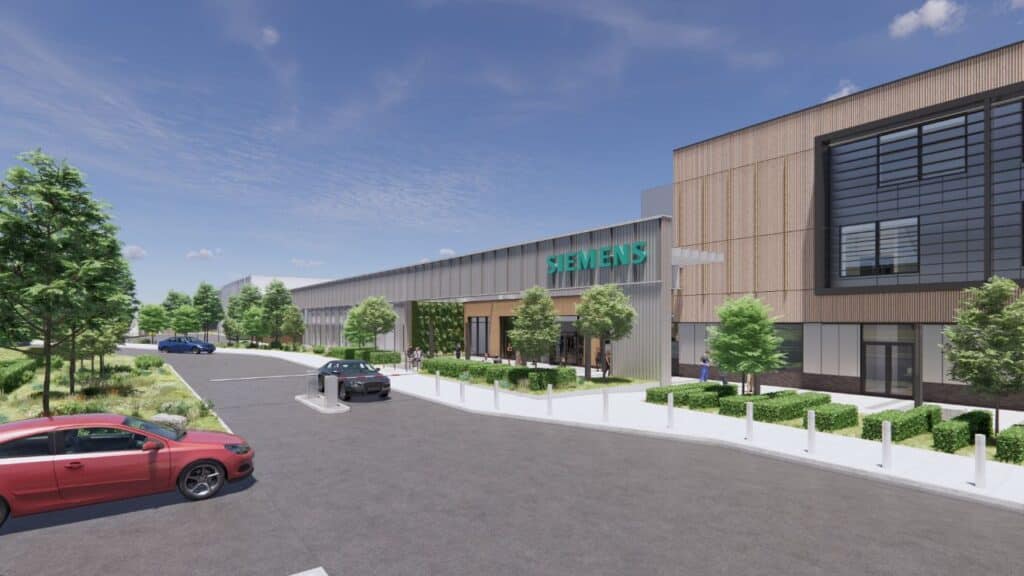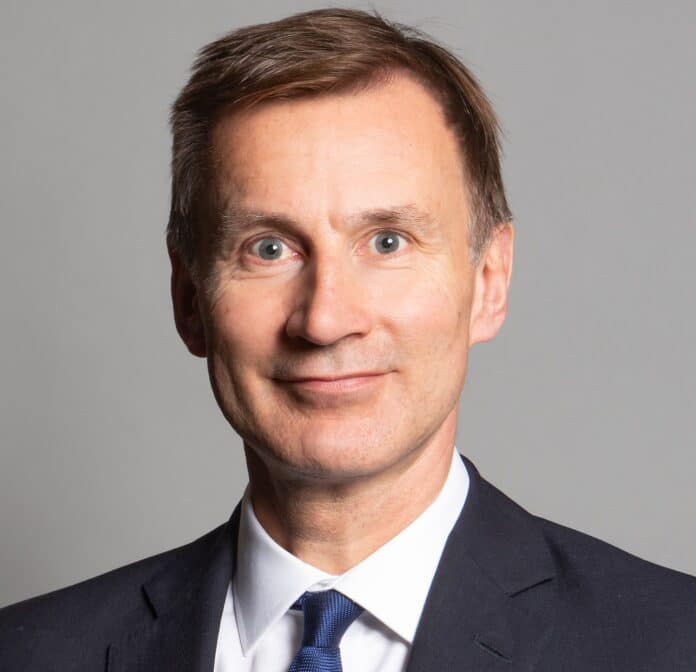In the last 14 years there has been more foreign direct investment for greenfield sites in the UK than anywhere else in Europe.
That was the claim by the Chancellor of the Exchequer Jeremy Hunt speaking at an event in which Siemens Mobility announced it is to invest £100 million in a centre of manufacturing excellence in Wiltshire.
“In the last three years, we have not had just more investment than anywhere else in Europe, but more than anywhere else in the world, except the United States,” the Chancellor said. “Companies recognise the extraordinary talent and creativity of the British people and are choosing to invest in the UK because of skills, technology, innovation and it is part of a transformation of our manufacturing.”
The new cutting-edge facility will replace the company’s current Chippenham factory, from which generations of British workers have designed, manufactured and delivered signalling and control systems for the likes of the Elizabeth line, North Wales Coast and Birmingham New Street.
“This is going to be the most advanced railway signalling equipment manufacturing centre in the world and that investment is only possible because of the skills of the people working here in Chippenham,” he said. “It will not just protect 800 jobs, but it will be investing in skills of those people potentially employing more going forward. So, it’s absolutely wonderful news for Chippenham and it’s wonderful news for the UK.”
The new centre is expected to be operational by 2026, with around 800 skilled manufacturing, research, engineering and reporting roles transitioning to the new site and no interruption in production.
The Government isn’t contributing any money to the investment, but the Chancellor said Siemens will benefit from the Full Expensing announced to support manufacturers in investing for less. Explaining how the organisation could benefit, he says any money spent on building new plant or equipment reduces the tax bill in the same year by 25 per cent.
“That is a £10 billion a year investment to support manufacturing,” he said. “It is more generous than Germany, France, America and Japan and it is because the fundamental thing that we need to improve in the British economy is our productivity,” he said. “If we are going to increase GDP per head, we need to improve productivity and that means we need to encourage investment. We still invest less as a proportion of our GDP than countries like Germany, this will help close the investment gap.”
Speaking to Rail Business Daily, the Chancellor said British manufacturing is of great strategic importance for the country on the global stage. The sector makes up over 40 per cent of all UK exports, employs around 2.6 million people and overtook France for output in 2021. To capitalise on this success, the government published its Advanced Manufacturing Plan last year to ensure the UK continues to lead in the development and deployment of digital manufacturing technologies.
“The UK will repay this (Siemens) investment in balance because we know how important it is that we deliver for you, having put this trust in us,” he said. “It is part of a bigger revival in manufacturing that has been happening in the UK over the last decade. There was a period in the UK where we thought that our future was services and we had great sectors like the City of London – very, very important for the UK, very competitive – and some people began to wonder in the press whether this was really the future now.
“That is not my view and it is not the view of the Government and when people say ‘how’s the UK going to pay for the NHS to get the cure for Alzheimer’s’, which is going to be incredibly expensive, and ‘how are we going to pay for our extra funding for defence’, my answer is simple. The strategy is to become to global leader in the industries that are going to grow the fastest in the 21st century and those sectors all link to technology.”
The examples he gives are Artificial Intelligence, where he says we have double the startups of anywhere else in Europe, and areas like Life Sciences, which is all about technology and discovery of new medicines.
“Medicines and vaccines discovered in the UK saved more lives around the world during the pandemic,” he said. “Film and TV it’s become very high tech these days with all of the special effects and we’ve become Europe’s largest central film and TV production, with the two blockbusters of last year – Barbie and Oppenheimer – both done in the UK.
“You see all of those sectors and then absolutely central to that is advanced manufacturing which has now become totally technology driven and so we’ve identified that as one of the key sectors and we’re very proud of the transformation in UK manufacturing, where it’s now about 10 per cent of our economy and growing.
“We are more or less one of the world’s top 10 manufacturers and that matters partly because it’s very export rich, as with this new Siemens’ facility exporting about half of the products made. But the real reason that we back manufacturing is that we know the transition we have to make in the UK is to an economy that is high wage and high skill, and in manufacturing that is exactly what you get. This will lead to increases of GDP per head, which means we have the money to fund our precious public services.”








































 0113 2082620
0113 2082620 info@railbusinessdaily.com
info@railbusinessdaily.com 15 Mariner Court, Wakefield WF4 3FL
15 Mariner Court, Wakefield WF4 3FL

